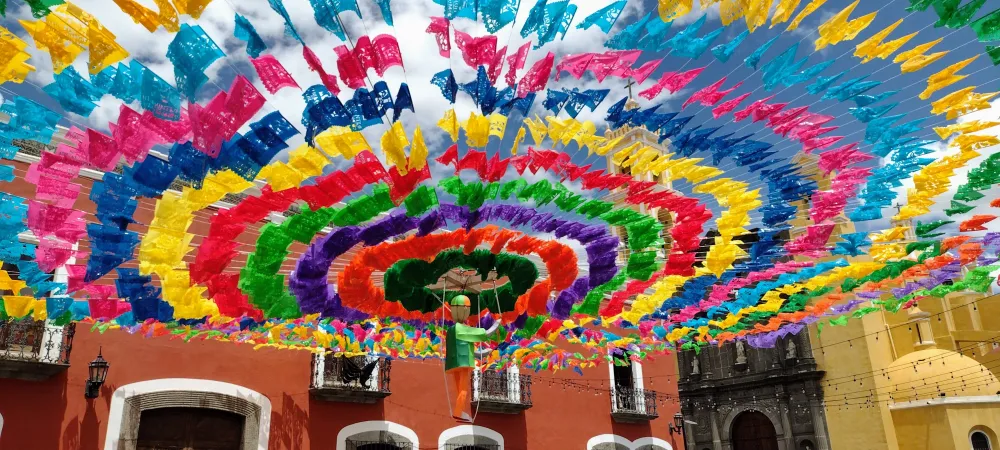Critiques are popping up in US media about the “invaders” who migrate to places around the globe. Recent criticism has been leveled at new Anglo arrivals in places like Mexico City, but other commentaries have tossed zingers at “expats” in places from Merida and San Miguel de Allende to the Lake Chapala area.
The American baby boomer’s unique ways of offending locals or infighting amongst ourselves is a sort of daily target shoot across dozens of Facebook groups. Some of these comments are caustic and mean spirited. As observers from afar (still not living here), social media folks “shadowing” locals are often bewildered by our mundane and myopic assessment of living overseas. Stay in a group long enough and you may decide all of us foreign-born “invaders” should simply pack up and go home, tails between our legs.
Yes, we are “invaders” who bring with us a physical appearance that’s impossible to hide, First World “problems” and attitudes, higher levels of education, some narcissism, and relative affluence that runs face to face into a Mexican reality some of us don’t want to face: Mexico’s people are poor and globally disadvantaged; glaringly so when compared with US and Canadians who descent on resorts, cities, and villages.
Does this mean we should stop coming? If we continue to “invade”, is our arrival part of a socioeconomic wellbeing tonic or another “colonization” that leaves plenty of losers in its wake? And is it even appropriate to lay these judgements at our feet?
We can’t “acclimate away” our tallness, blondness or what one author calls “boomeritis”. I try sometimes. I won’t wear short pants in public unless I’m at a beach resort. I think it’s disrespectful of local mores. You’ll almost never see Mexican men wearing shorts, so I won’t either. But I’ll always be six foot one and pretty fair skinned.
Is not wearing shorts my response to reversing the glaring gaps in lifestyle whenever we put down roots in Mexico? Of course not. There’s a lot more we can do as individuals and working in consort with our neighbors. Here are three ideas to connect and engage with the places and spaces we co-habitat across Mexico.
- Learn Spanish: it’s really not as hard as it looks. Thousands of cognates give you a huge advantage (“migration” is “migracion, for goodness sake). If you find a teacher/technology that “gets” how language is acquired and retained, significant progress can happen in a short amount of time. Mexicans will appreciate and respect your efforts to learn their language. I’ve seen this in action over the past 40 years doing business in Mexico. Anglos who invest in understanding Mexican language and traditions have not only a richer living experience but also become bridges for embracing our shared, multicultural, North American future.
- Mind your Manners: Mexican manners are the rules we all should be playing by. But most of us don’t. Fortunately, if you live in the Lake Chapala area, we have the “Mexican Manners” class, offered monthly by the Lake Chapala Society. Once this becomes a Zoom or recorded course on “dos and don’ts”, I recommend you enroll, get ready to laugh, and humbly accept that Mexicans pay attention to a verbal and non-verbal “language” that most of us are oblivious to. You live in a land where “yes can mean no” and it’s rude to tell someone “I don’t know.” Mexicans are masters at non-verbal communication, using an entire language of hand gestures, eyeball pointing, postures, whistles, chirps, and command of physical space to “say” things in occasions where simply “speaking up” would be too rude or confrontational.
- Learn Mexican History: this is a win-win proposition. You’ll find out remarkable facets of your new homeland and break free of stereotypical homogenizations that too often come from the mouths of foreign-born residents. And your Mexican neighbors might just “catch you” telling tales of one of the world’s most enthralling human histories. This will take some effort, but English reading about Mexican society and history is at your fingertips. I suggest anyone who’s scratching their head about Mexican realities start at the beginning. The European invasion of Mexico launched in 1519 is (by some historians) considered the most important single event in human history. And it all when down in your new backyard. It’s not only the most consequential cultural collision of civilizations, but led to the largest naval battle in history, the largest genocide in human history, and something called the “Columbian Exchange” that launched globalization five hundred years ago. A recommended read is “Conquistadors” by Buddy Levy of Tulane University or “1491” by Charles Mann.
But don’t stop there. Foreigners have been writing about their Mexico encounters with the land of tacos and tlacuaches for centuries. The field is rich with vivid accounts of personal stories both tragic and transformational. Living historians like Tony Burton have made there mission to bring Mexican history to the English masses in his eight books, including two fascinating releases from 2022.
Mexico has given foreign-born residents a new chance at life. It’s never too late to look in the mirror and say “I owe Mexico” and take some steps to return a favor. This won’t make you shorter, or less Anglo. But it may help observers from afar (and our new neighbors) we can be more than agents of disruption.




